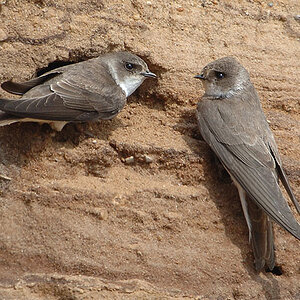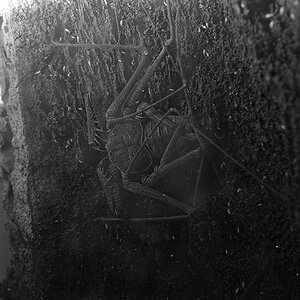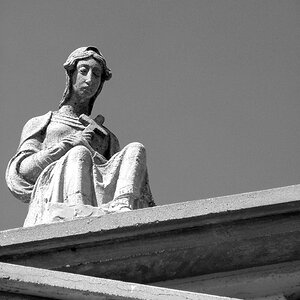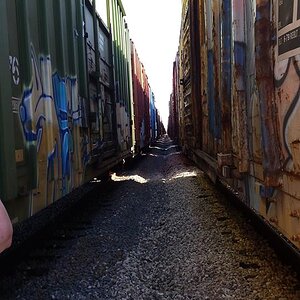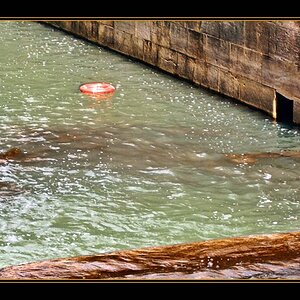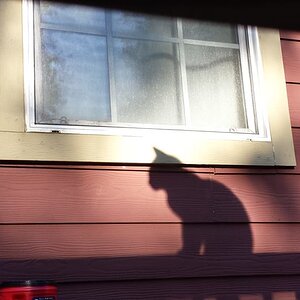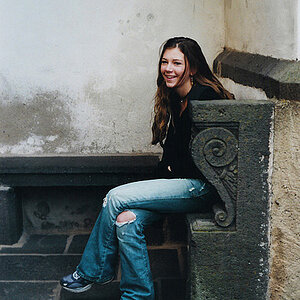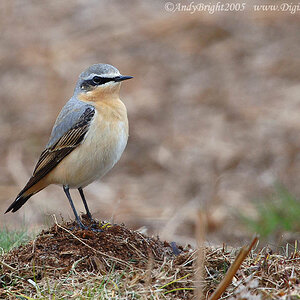So true that I can't work out whether it's hilarious or depressing. Probably both.
Navigation
Install the app
How to install the app on iOS
Follow along with the video below to see how to install our site as a web app on your home screen.

Note: This feature currently requires accessing the site using the built-in Safari browser.
More options
You are using an out of date browser. It may not display this or other websites correctly.
You should upgrade or use an alternative browser.
You should upgrade or use an alternative browser.
Henri Cartier-Bresson "Eliminated"
- Thread starter inneist
- Start date
markc
TPF Noob!
- Joined
- Mar 8, 2004
- Messages
- 4,237
- Reaction score
- 6
- Location
- Rochester, NY Velocity: Unknown
- Website
- www.markcarpenter.com
- Can others edit my Photos
- Photos NOT OK to edit
Considering his approach and subject matter, I'm guessing that he was waiting for someone to go by, whether it was a cyclist or a person walking. He seems to be the perfect example of Pasteur's Chance favors only the prepared mind. We'll never know, but while he may not have been waiting for a bicycle, I'd lay money down that he was waiting for someone to go by, a bit like a wildlife photographer.
I hope this isn't taken as arguing. I'm not taking issue with what people are saying so much as using it for conversation fodder.
I hope this isn't taken as arguing. I'm not taking issue with what people are saying so much as using it for conversation fodder.
CMan
TPF Noob!
- Joined
- Nov 6, 2006
- Messages
- 309
- Reaction score
- 0
- Location
- Indiana
- Can others edit my Photos
- Photos NOT OK to edit
I don't go by who took the picture; I go by whether or like it or not.
That Henri Cartier-Bresson took the picture is irrelevant. What is relevant is whether you like it or not; I've talked with one photographer who holds the opinion that Ansel Adam's works are poor in composition and overexposed.
And it's fine that he holds that opinion. Just because someone is a "master" doesn't mean you have to like their work.
That Henri Cartier-Bresson took the picture is irrelevant. What is relevant is whether you like it or not; I've talked with one photographer who holds the opinion that Ansel Adam's works are poor in composition and overexposed.
And it's fine that he holds that opinion. Just because someone is a "master" doesn't mean you have to like their work.
I don't believe all the work of a "master" is inherently masterful, and nor would I tell anyone else that they should believe so.
The problem for me is not that there are people who don't think that's a good image. I don't think it's a particularly bad one but it has no particular significance for me. The problem for me is not the lack of awareness that it was a Cartier-Bresson either. The problem for me is the idea that there must be sharpness. The idea that there must be one subject which can clearly and instantly be identified as such. People talk about the 'democracy' of sites like that and how it apparently frees us from rules, preconceptions and snobbery, as if those things were somehow absent online.
Finally, the suggestion (by one person on that site) that because the image was captured with older technology its value has somehow decreased with age, is absolutely hilarious, and the only thing funnier than that is that the analogy they used compared art with video games.
The problem for me is not that there are people who don't think that's a good image. I don't think it's a particularly bad one but it has no particular significance for me. The problem for me is not the lack of awareness that it was a Cartier-Bresson either. The problem for me is the idea that there must be sharpness. The idea that there must be one subject which can clearly and instantly be identified as such. People talk about the 'democracy' of sites like that and how it apparently frees us from rules, preconceptions and snobbery, as if those things were somehow absent online.
Finally, the suggestion (by one person on that site) that because the image was captured with older technology its value has somehow decreased with age, is absolutely hilarious, and the only thing funnier than that is that the analogy they used compared art with video games.
CMan
TPF Noob!
- Joined
- Nov 6, 2006
- Messages
- 309
- Reaction score
- 0
- Location
- Indiana
- Can others edit my Photos
- Photos NOT OK to edit
I agree with you, Zaphod.
The people commenting in that group seem to have no concept of art in a picture. I took one recently that was slightly out of focus and blurry in places; but it ended up being one of my favorites.
You are absolutely right; it's not about sharpness.
The people commenting in that group seem to have no concept of art in a picture. I took one recently that was slightly out of focus and blurry in places; but it ended up being one of my favorites.
You are absolutely right; it's not about sharpness.
inneist
TPF Noob!
Here the new year has already arrived. At this moment I'd just want to jump on a plane and fly west to the US so that I can go back in time. There's another way to freeze time, it's called photography. In a way, a timeless photo survives in time for the odd fact that it captures a moment, just a moment, nothing more than that. I recall another even older 1931 Munkacsi's photo which was said to impress the young art student HCB so much so that it drew him into a life pursuit of photography rather than painting. In my memory it's a very blurred dark photo of three dark-skinned naked boys on the beach. But, according to HCB, it manifested "freedom, grace and spontaneity", in a word, it showed the subjects being "alive". I really like what fmw earlier suggested: art as an accidental happening. My take is that when something just happened, capture it, for the sake of honesty and sincerity, that's what I think photography does its best, otherwise we have other artistic or technical means for different purposes.
I also agree a photo shouldn't be judged as good just because the one behind the camera is believed to be a master of photos. That would amount to cultural snobbishness. The matter is about whether the photo in question is good, bad, or a piece of art. Admittably it's always difficult to evaluate in art. One is always unsure at this domain, but that doesn't mean art is a sham. Got to be something there artists hold dear and strive for. What it actually is may vary for different people though.
I also agree a photo shouldn't be judged as good just because the one behind the camera is believed to be a master of photos. That would amount to cultural snobbishness. The matter is about whether the photo in question is good, bad, or a piece of art. Admittably it's always difficult to evaluate in art. One is always unsure at this domain, but that doesn't mean art is a sham. Got to be something there artists hold dear and strive for. What it actually is may vary for different people though.
danalec99
TPF Noob!
- Joined
- Mar 14, 2004
- Messages
- 8,345
- Reaction score
- 69
- Can others edit my Photos
- Photos NOT OK to edit
This is my kind of shot. Perfect blur and well timed; not to mention the commanding composition.
I don't like it because it's an 'HCB work'. Eventhough I'm an HCB zealot, there are several of his images that does not move me.
 . Slow shutter speed can sometimes add to the story. Then again, I'm not a fan of the cookie cutter approach.
. Slow shutter speed can sometimes add to the story. Then again, I'm not a fan of the cookie cutter approach.
Thanks for the link to the interview, Matt.
Here is a link to a documentary on him.
Mark, thanks for leading me to Ackerman's work. When I saw his page, the first thing that came to my mind was this image.
I don't like it because it's an 'HCB work'. Eventhough I'm an HCB zealot, there are several of his images that does not move me.
What's a street shot without a lil blurReally, I'm curious, to what extent the sharpness of a photo means to you personally in street photography?
Thanks for the link to the interview, Matt.
Here is a link to a documentary on him.
Mark, thanks for leading me to Ackerman's work. When I saw his page, the first thing that came to my mind was this image.
- Joined
- Dec 11, 2006
- Messages
- 18,743
- Reaction score
- 8,047
- Location
- Mid-Atlantic US
- Website
- www.lewlortonphoto.com
- Can others edit my Photos
- Photos NOT OK to edit
Please excuse this long post.
----------------------
I was in Santa Fe, NM this spring and was in a gallery in La Fonda Hotel that had many B&W prints by HCB, Weston, Adams etc and, for the first time, I was seeing real prints by acknowledged ‘masters’ in some profusion. I was struck by the fact that some I really liked and some I was profoundly indifferent to. I had this experience when looking at photo books but I put that down to inauthentic reproduction.
Being out in the American SW where there is a lot of space between anything, I had a lot of time to think about this experience while driving and this analogy came to mind.
Tell me if the following concept makes any sense – even on a limited basis or if it's just an errant thought produced by driving long distances across Arizona.
Any photographer makes photographs based on 3 factors: 1) technical ability and capacity – access to equipment, imaging etc and the skills to use.; 2) likes and dislike in ‘art’ and; 3) esthetic sensibilities – how subtle and sophisticated the photographer is in perceiving what she/he actually cares about. These 3 factors combine to make a sort of ‘response surface’ (a term that comes from experiemtnal design) – and the photographer’s work lies on this surface.
Somehow, conceptually, the more acute the person’s senses or abilities are, the thinner the surface and the closer to that ‘surface that all of her/his work lies.
eg, I have a great tripod and camera back but only use a macro lens, have come to know and love pictures of bees and take only pictures of bees.
HCB would never produce something that looked like an Ansel Adam’s work because of major differences in all 3 factors.
When we/any viewer look at work by other photographer, how much we like it depends on how our appreciation and understanding (our ‘interest surface’ , based on our own levels of these 3 factors, intersects with the photographer’s. The closer the surfaces are, the more likely we are to like ore of their work.
, based on our own levels of these 3 factors, intersects with the photographer’s. The closer the surfaces are, the more likely we are to like ore of their work.
For example, a large format film photographer (LFFP) would get all gooey over an Adam’s work, no matter how cold and distant, because the LFFP understand and respects the technical skills, generally enjoys that kind of ‘art’ and, by nature of the effort to become a LFFP, has developed some similar esthetic sensibility.
I, on the other hand, love photographs that imply ideas and emotions beyond the frame and strict representational work, no matter how skilled, generally leaves me cold so I only like/appreciate the LF photos that have the emotional and content characteristics that I value.
OTOH, even a novice photographer can sometimes, by chance, catch a picture of staggering beauty that intermediate and advnced photographers can appreciate and love.i.e. that intersect our collective interest surfaces.
Unfortunately, most beginning photographers have no clue of what or why and they respond to in photos. In reality, I have no idea what they respond to. The number of ‘cool’ and ‘neat’ comments to snapshots just drives me nuts.
Every time I see this kind of comment, I want to find the person, stand on their chest and yell directly into their face that they have to understand why they like something before they can hope to get to be a good photographer themselves and that ‘neat’ is only a description of how one drinks whiskey.
In any case, this thread revives my interest in this entire forum because it has drawn some very (in my opinion) intelligent and insightful comments and I hope that some of these respondents will look at my picture posts.
I will be here only sporadically for the next week and then will be gone for 6 weeks on a photo trip to Laos/Cambodia but hope on my return in late February to start post lots of pix from there.
----------------------
I was in Santa Fe, NM this spring and was in a gallery in La Fonda Hotel that had many B&W prints by HCB, Weston, Adams etc and, for the first time, I was seeing real prints by acknowledged ‘masters’ in some profusion. I was struck by the fact that some I really liked and some I was profoundly indifferent to. I had this experience when looking at photo books but I put that down to inauthentic reproduction.
Being out in the American SW where there is a lot of space between anything, I had a lot of time to think about this experience while driving and this analogy came to mind.
Tell me if the following concept makes any sense – even on a limited basis or if it's just an errant thought produced by driving long distances across Arizona.
Any photographer makes photographs based on 3 factors: 1) technical ability and capacity – access to equipment, imaging etc and the skills to use.; 2) likes and dislike in ‘art’ and; 3) esthetic sensibilities – how subtle and sophisticated the photographer is in perceiving what she/he actually cares about. These 3 factors combine to make a sort of ‘response surface’ (a term that comes from experiemtnal design) – and the photographer’s work lies on this surface.
Somehow, conceptually, the more acute the person’s senses or abilities are, the thinner the surface and the closer to that ‘surface that all of her/his work lies.
eg, I have a great tripod and camera back but only use a macro lens, have come to know and love pictures of bees and take only pictures of bees.
HCB would never produce something that looked like an Ansel Adam’s work because of major differences in all 3 factors.
When we/any viewer look at work by other photographer, how much we like it depends on how our appreciation and understanding (our ‘interest surface’
For example, a large format film photographer (LFFP) would get all gooey over an Adam’s work, no matter how cold and distant, because the LFFP understand and respects the technical skills, generally enjoys that kind of ‘art’ and, by nature of the effort to become a LFFP, has developed some similar esthetic sensibility.
I, on the other hand, love photographs that imply ideas and emotions beyond the frame and strict representational work, no matter how skilled, generally leaves me cold so I only like/appreciate the LF photos that have the emotional and content characteristics that I value.
OTOH, even a novice photographer can sometimes, by chance, catch a picture of staggering beauty that intermediate and advnced photographers can appreciate and love.i.e. that intersect our collective interest surfaces.
Unfortunately, most beginning photographers have no clue of what or why and they respond to in photos. In reality, I have no idea what they respond to. The number of ‘cool’ and ‘neat’ comments to snapshots just drives me nuts.
Every time I see this kind of comment, I want to find the person, stand on their chest and yell directly into their face that they have to understand why they like something before they can hope to get to be a good photographer themselves and that ‘neat’ is only a description of how one drinks whiskey.
In any case, this thread revives my interest in this entire forum because it has drawn some very (in my opinion) intelligent and insightful comments and I hope that some of these respondents will look at my picture posts.
I will be here only sporadically for the next week and then will be gone for 6 weeks on a photo trip to Laos/Cambodia but hope on my return in late February to start post lots of pix from there.
craig
TPF Noob!
- Joined
- Oct 30, 2003
- Messages
- 5,600
- Reaction score
- 21
- Location
- Hermosa Beach, CA U.S.A
- Website
- craigblank.com
That flickr thread is an accident waiting to happen. I am increasingly finding an elitetest attitude that is just wrong. Photography is a journey man. We all started off taking pictures as opposed to photographs. We all called photos neat or cool for a lack of a better word or an understanding. We all felt that the exposure had to be "perfect" and in "focus". Point is that our work and knowledge of art evolves. Photography takes time and dedication. Why should I be offended by beginners? With any kind of luck I will be able to help them. We should never criticize or stand on some ones chest and yell down their throat. We are here to enjoy photography and share knowledge. Ten bucks says years from now the person who bounced the Bresson shot or had a lame comment will blow us away with his or her insights and images.
Generally I like the shot to be in focus, but I am sucker for motion blur and or shallow depth of field.
Really, I'm curious, to what extent the sharpness of a photo means to you personally in street photography?
Generally I like the shot to be in focus, but I am sucker for motion blur and or shallow depth of field.
Alex_B
No longer a newbie, moving up!
- Joined
- Aug 30, 2006
- Messages
- 14,491
- Reaction score
- 206
- Location
- Europe 67.51°N
- Can others edit my Photos
- Photos NOT OK to edit
the thread cited tells you so much more about 90% of all people using cameras these days (calling them users, not photographers now  ) than can be discussed in a few words on this forum.
) than can be discussed in a few words on this forum.
I myself am very much into sharpness in an image ("something has to be in focus, even if just something tiny") if it comes to my own images, but I would not use it as the criterion to distinguish art from no art or good from no good.
many of those posts in the cited flickr thread were made by (well equipped) beginners, who think of themselves as an elite in a way ...
I myself am very much into sharpness in an image ("something has to be in focus, even if just something tiny") if it comes to my own images, but I would not use it as the criterion to distinguish art from no art or good from no good.
craig said:Why should I be offended by beginners?
many of those posts in the cited flickr thread were made by (well equipped) beginners, who think of themselves as an elite in a way ...
- Joined
- Dec 11, 2006
- Messages
- 18,743
- Reaction score
- 8,047
- Location
- Mid-Atlantic US
- Website
- www.lewlortonphoto.com
- Can others edit my Photos
- Photos NOT OK to edit
These are generalizations that one can make but certainly are not necessarily true.We all started off taking pictures as opposed to photographs.
We all called photos neat or cool for a lack of a better word or an understanding.
We all felt that the exposure had to be "perfect" and in "focus".
I for one learned, relatively formally, from a teacher who respected me enough to tell me when my pictures were bad and taught me that I could not be a better photographer until I could understand why pictures were good - or bad - and had the vocabulary to use in this understanding.
I wouldn't expect any person - child or adult - to play any game from stoop tag to football or pursue any hobby from stamp collecting to woodworking without a basic understanding of the rules and knowing the vocabulary.
Photography is not just a shutter button and a camera set on auto.
Ir is very easy to 'not be critical' but it is intellectually dishonest in an environment where people are coming to learn.
It is disrespectful of someone to assume that they can't be told the truth because they couldn't handle it.
The challenge is to phrase the truth in an acceptable, enlightening way.
I assumed that all readers would recognize this as hyperbole - my mistake.Every time I see this kind of comment, I want to find the person, stand on their chest and yell directly into their face that they have to understand why they like something before they can hope to get to be a good photographer themselves and that neat is only a description of how one drinks whiskey.
Alex_B
No longer a newbie, moving up!
- Joined
- Aug 30, 2006
- Messages
- 14,491
- Reaction score
- 206
- Location
- Europe 67.51°N
- Can others edit my Photos
- Photos NOT OK to edit
Ir is very easy to 'not be critical' but it is intellectually dishonest in an environment where people are coming to learn.
It is disrespectful of someone to assume that they can't be told the truth because they couldn't handle it.
I think some people post here to share images and talk about them, not always in a photography terms. Others come here to improve and want to get all comments be it good or devastating.
Of course those two worlds collide sometimes ...
If you first see an image someone posted you do not know what he wants (unless he states explicitly). So someone might just be very careful with critisiting. later when people got to know each other better, critizism might be more harsh and "honest" by those who are able to give such comments. of course not everony is able to as not everyone knowas how to express his feelings about an image in words or just is not compentent in other ways. that is why i for example do not comment on certain types of images at all, since i do not feel competent for every single kind of photography. Sometimes then I might just say "nice" .. or "i am not sure, but it does not work for me".
Similar threads
- Replies
- 6
- Views
- 252
- Replies
- 11
- Views
- 633
- Replies
- 6
- Views
- 412
- Replies
- 14
- Views
- 569
- Replies
- 8
- Views
- 445

